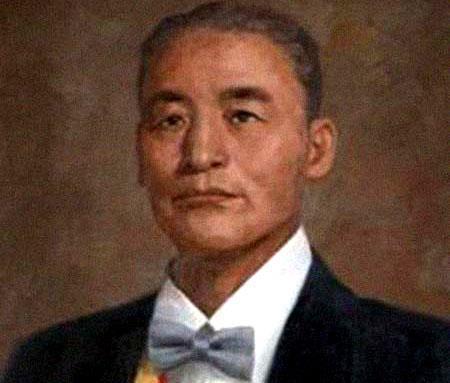Since Japan annexed Korea in 1910, many Koreans who were not willing to be slaves to the country came to China and Russia, wanting to use the two countries as bases for restoration, and began a series of extremely tortuous, extremely difficult, and frustrated causes of restoring the motherland.
Many Korean exiles joined the Chinese army in their efforts to eliminate Japanese fascism, and Wang Yishu was a very representative one of them.

In 1916, the 18-year-old Wang Yishu came to China and began his long and tortuous road to salvation.
As a weak and helpless exile, Wang Yishu was like a drowning drowning person, seeing anything or touching anything and wanting to use it, trying to plead with the other party to help him, but he was met with countless disappointments and setbacks, but he did not give up, repeated setbacks, consistent, or touched a lot of Chinese.
In 1918, Wang Yishu met Liu Gangwu, the son of Liu Xianshi, the overseer of Guizhou, in Shanghai, and Liu Gangwu guided him to enter the Guizhou Army Lecture Hall to study military affairs, and after graduation, he entered Liu Xianshi's army.
However, the warlord's troops saw no hope for him, so he had to return to Shanghai and find the Korean government-in-exile. When the government-in-exile saw that he understood the military, it sent him to the northeast to form the Korean Volunteer Army, which later entered Russia.
They may have thought that Russia, as Japan's nemesis, would inevitably support them strongly, but at this time, Russia fell into a civil war, and the Korean Volunteer Army sided with Tsarist Russia, bet on the wrong treasure, and finally was expelled by the Soviet Union.
When the Korean Volunteer Army returned to China and was basically in a state of disintegration, Wang Yishu saw that the restoration of the country must be a long and long road, so he quit his impatience and decided to take root in China and participate in the Chinese revolution. He felt that China must be the main force in the resistance against Japanese imperialism, and participating in the Chinese revolution was actually an indirect effort to restore Korea.
In 1926, Wang Yishu joined the National Revolutionary Army and participated in the Northern Expedition, and later served as the chief of staff of the Wusong Fortress Headquarters, the director of the Military Aircraft Department of the Shanghai Arsenal, and the director of the Rear Intelligence Bureau of the 19th Route Army.
In 1932, the 128 Songhu War of Resistance broke out in Shanghai, Wang Yishu and the Chinese and Korean resistance fighters in Shanghai planned an assassination operation that shocked China and foreign countries, and with the financial support of Wang Yaqiao, Wang Yishu contacted the Korean national hero Yin Fengji and carried out a successful attack on a high-ranking Japanese official in Hongkou Park, killing and injuring many senior Japanese officials.
Subsequently, Wang Yishu, together with the Chinese Resistance Fighters, tried to dive and blow up the Japanese flagship "Izumo" anchored at Wusongkou. These two incidents are symbols of the unity of the Chinese and ROK peoples to resist Japan.
In 1937, when China's all-out War of Resistance broke out, at the strong request of Wang Yishu, he was transferred to one of the strongest anti-Japanese units, the 102nd Division of the Qian Army led by Bai Huizhang, as chief of staff.
The 102nd Division participated in the famous Battle of Songhu, the Battle of Wanjialing, the Battle of Shanggao and other major battles, and won many meritorious awards, and Wang Yishu was also valued by Chiang Kai-shek, who transferred him to the Central University of the Army to study and was promoted to chief of staff of lieutenant generals in the Nationalist Army.
After Japan's surrender, Wang Yishu did not immediately return to his long-lost motherland, but continued to serve in the northeast until 1948, when he returned to China as the director of the Korean Patriotic Army Bureau and the principal of the Army Non-Commissioned Officer School.
After the outbreak of the Korean War, in the face of the overwhelming North Korean People's Army, the Rok army with no combat experience panicked, and Wang Yishu advocated concentrating superior forces to fight several annihilation battles, but it was not adopted, and the ROK army was broken by each one.
At the critical moment, Wang Yishu was appointed as the commander of the Rokish First Army, building a very strong Jianghan defense line to support the arrival of the US army.
However, Wang Yishu belonged to the "Chinese faction", and under the exclusion of the pro-Soviet, pro-American, and pro-Japanese factions with a large number of people, he gradually lost his position and withdrew from the military circles.
Later, Wang Yishu served as South Korean foreign minister and president of the Restoration Society, and died in 1980 at the age of 82.